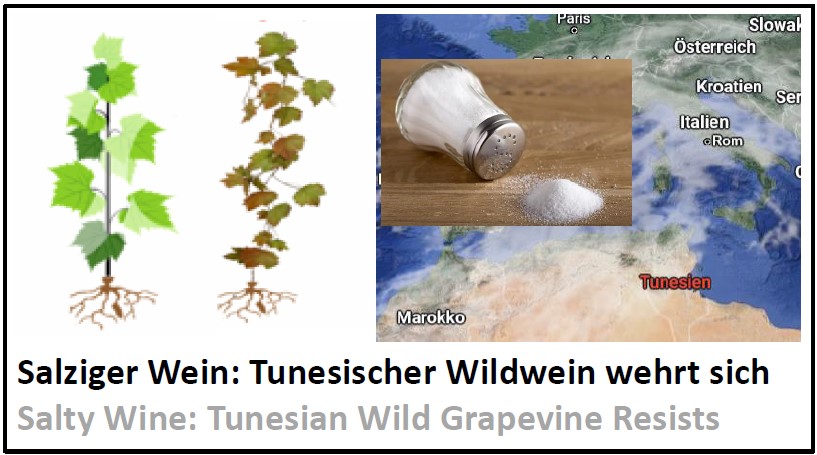2023_06: Vino salido
 |
An often neglected consequece of climate change is the increase of soil salinity - rising sea levels, but also artificial irrigation make more and more soild go lost. A joint project funded by the German and the Tunisian Ministry of Science investigated this for grapevine. During a comparative study, we could show that a wild grapevine that had been found in the Atlas mountains, can grow even under severe salinity, although it takes up the salt and transfers it to the leaves. Together with the Max-Rubner Institute we can show that the metabolic processes in the leaves are tuned in a more robust manner, such that the accumulation of dangerous reactive oxygen species can be avoided. This allows the wild grapevine to assign its resources preferentially for photosynthesis. Thus, there is not a miracle molecule of resilience, resilience rather appears to be a more efficiently orchestrated connection of different metabolic processes. This work has now appeared in the high ranking journal Plant Physiology . Publication: 199. Daldoul S, Gargouri M, Weinert C, Jarrar A, Egert B, Mliki A, Nick P (2023) A Tunisian Wild Grape Leads to Metabolic Fingerprints of Salt Tolerance. Plant Physiology - pdf
|
